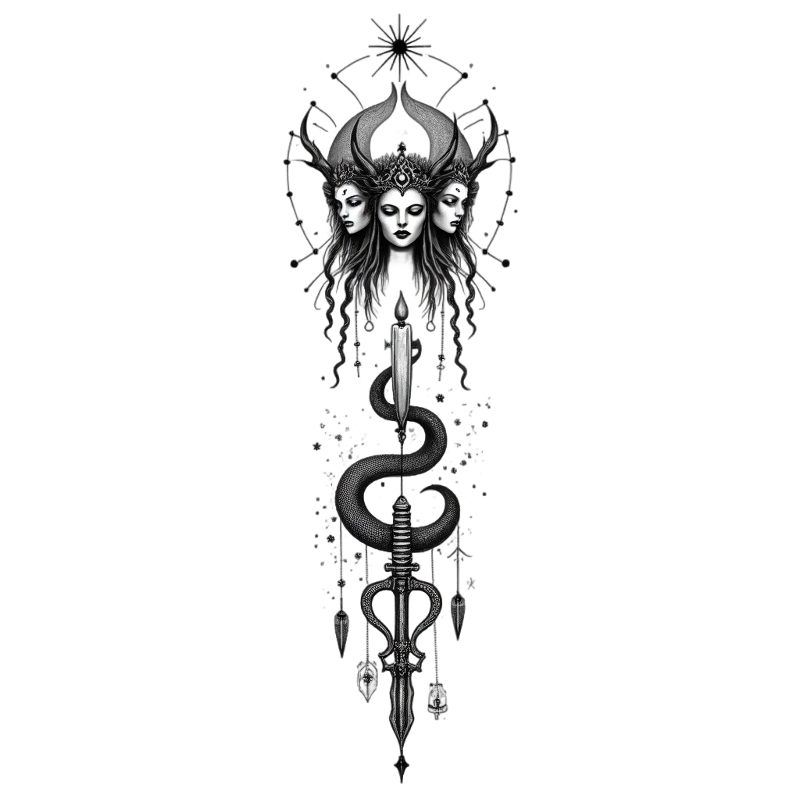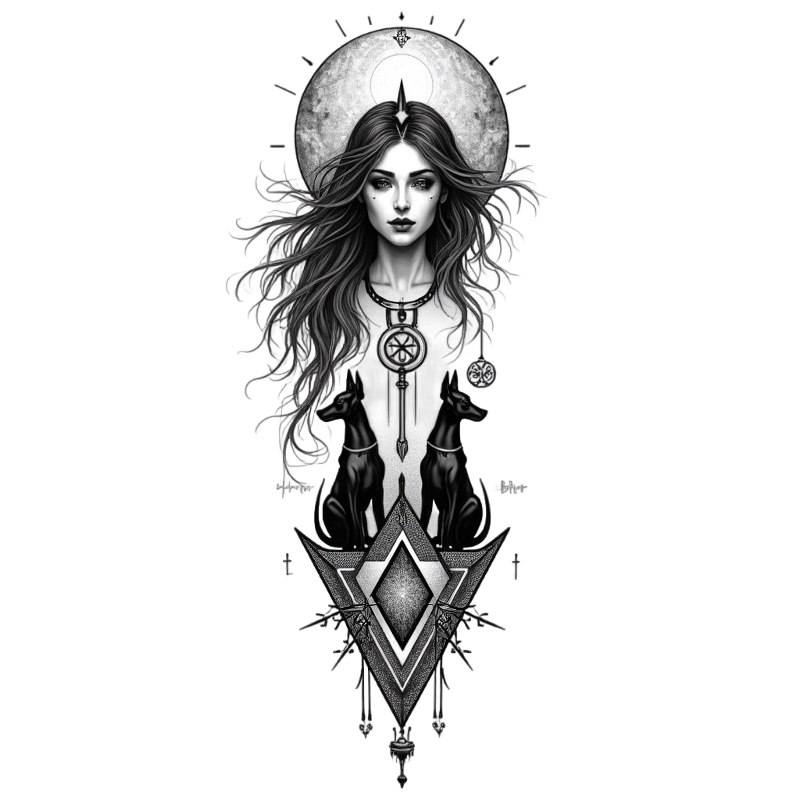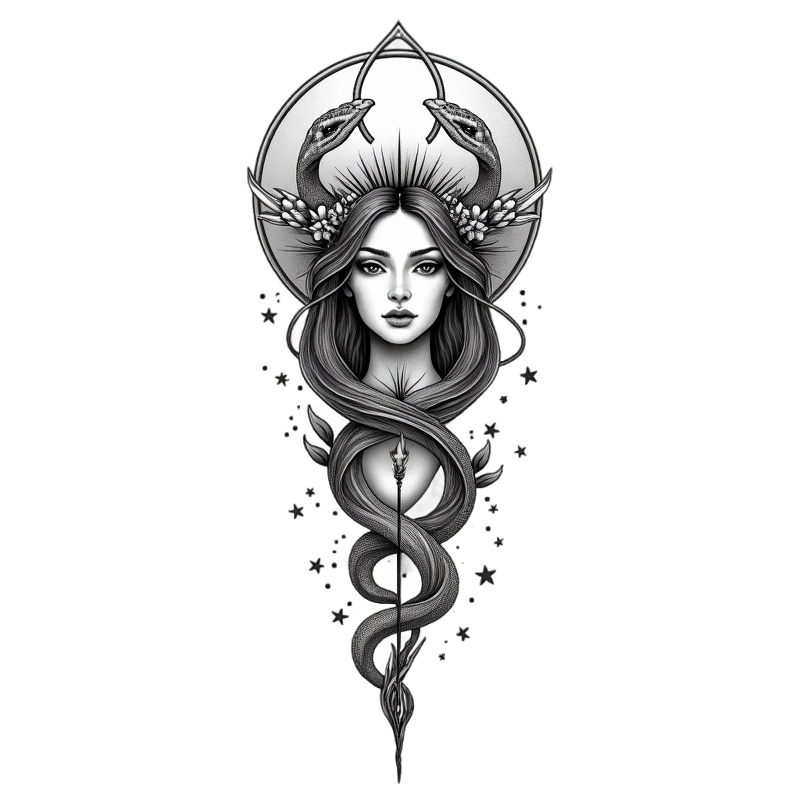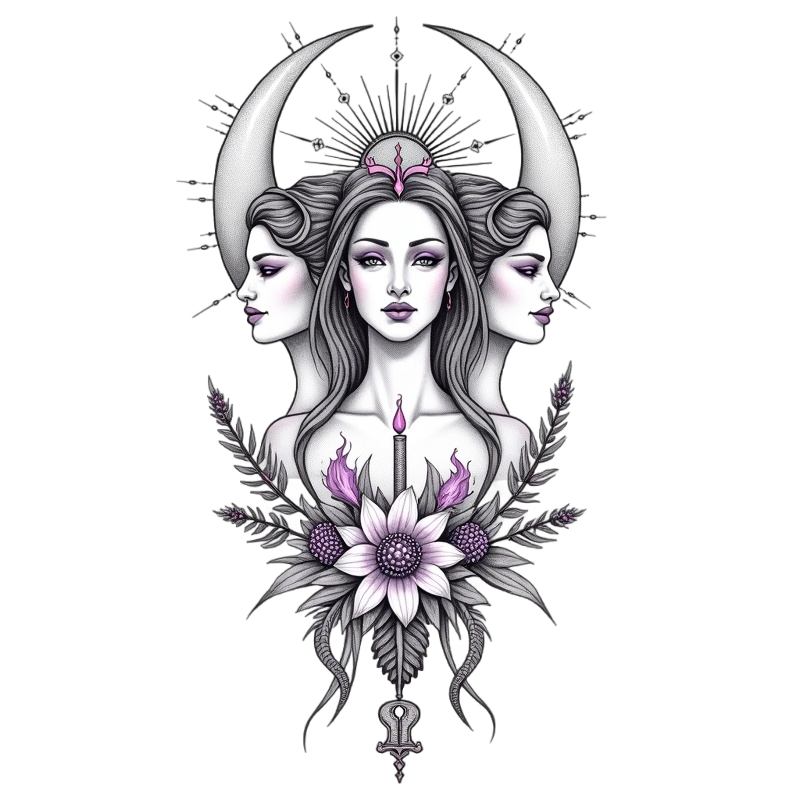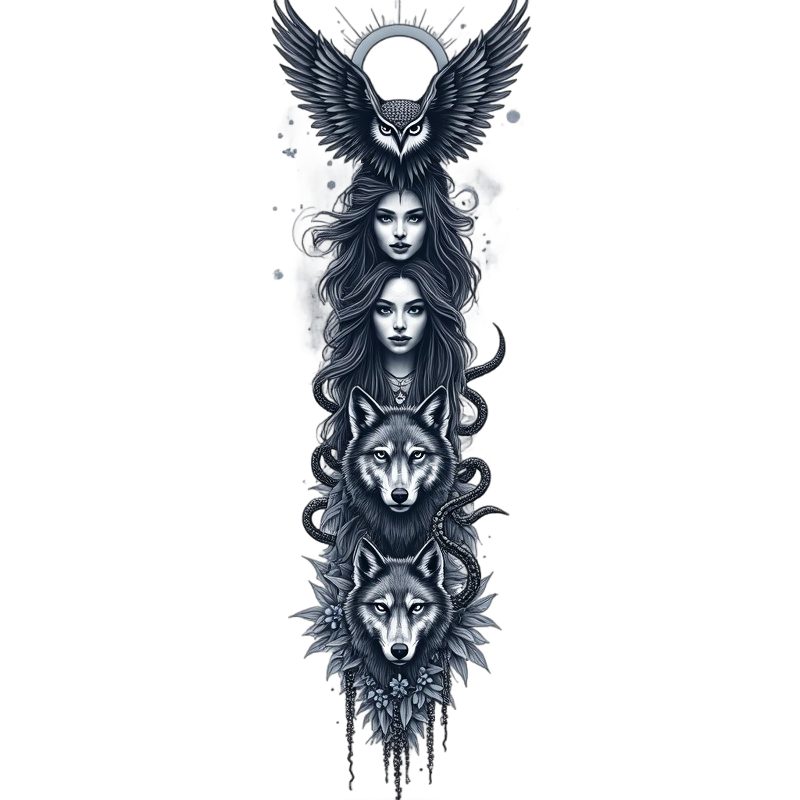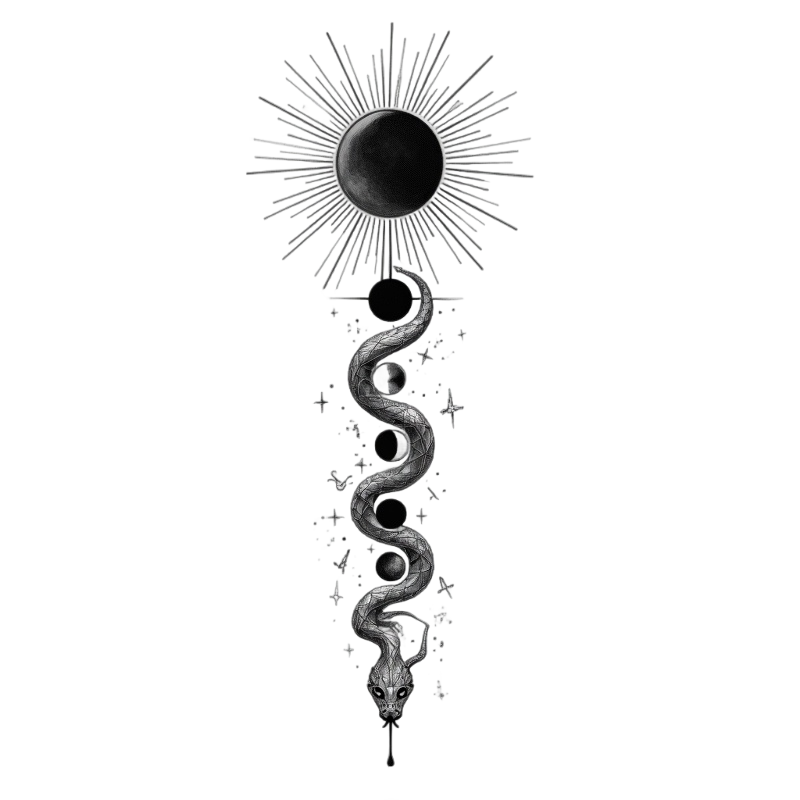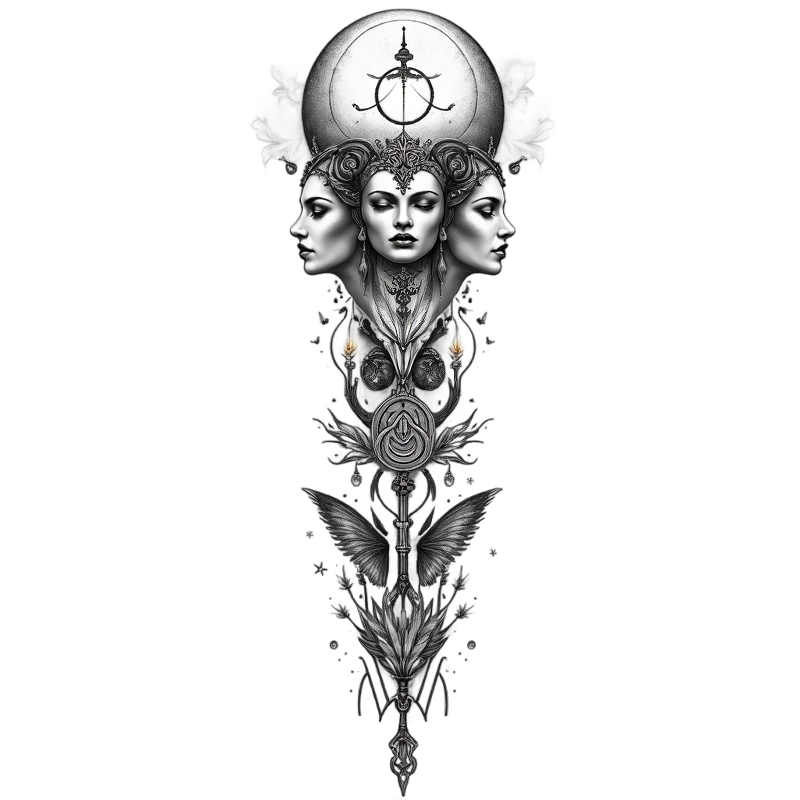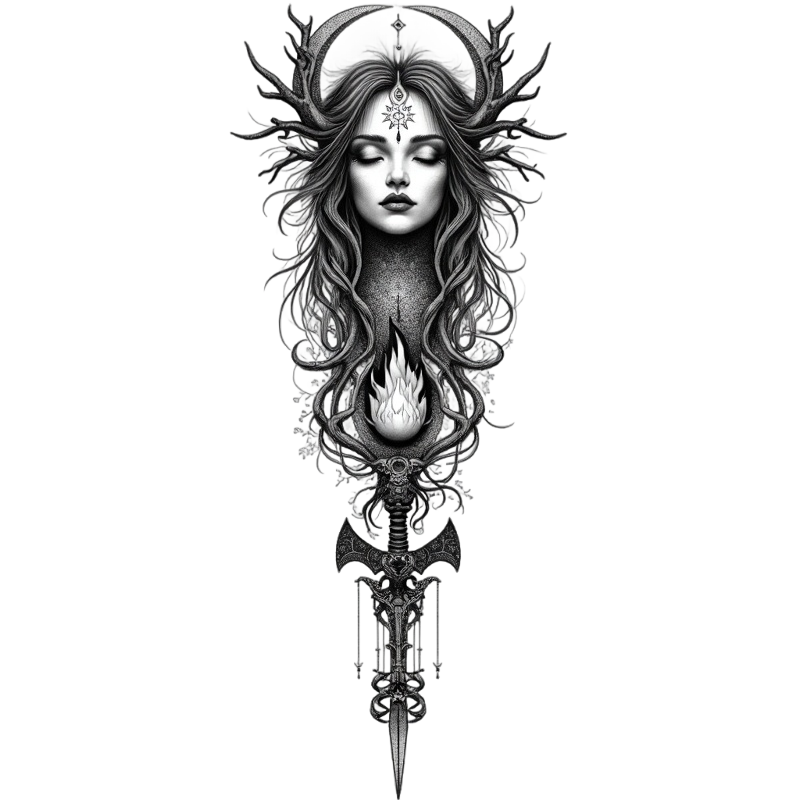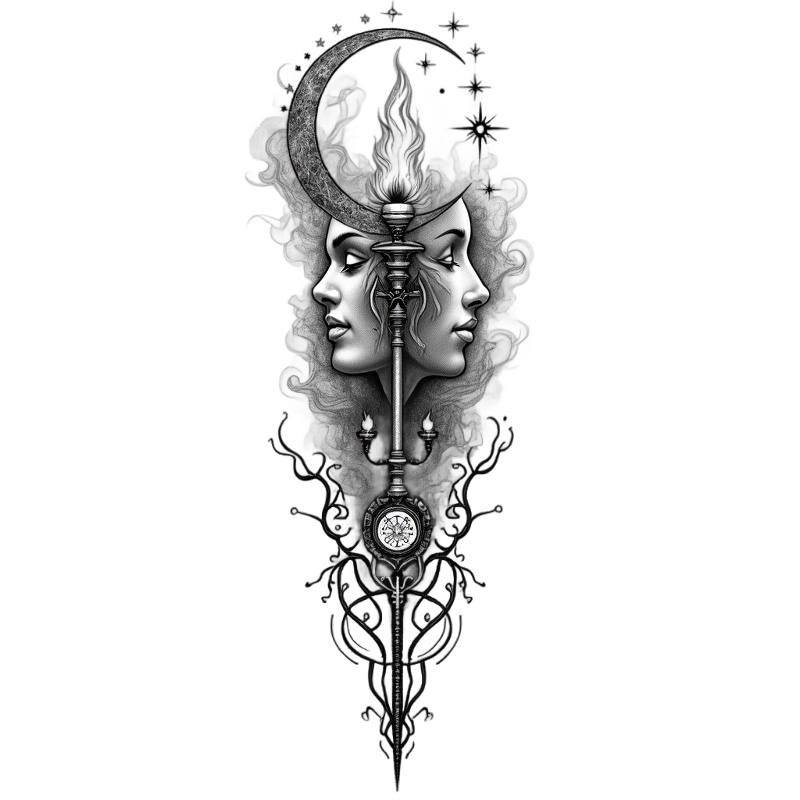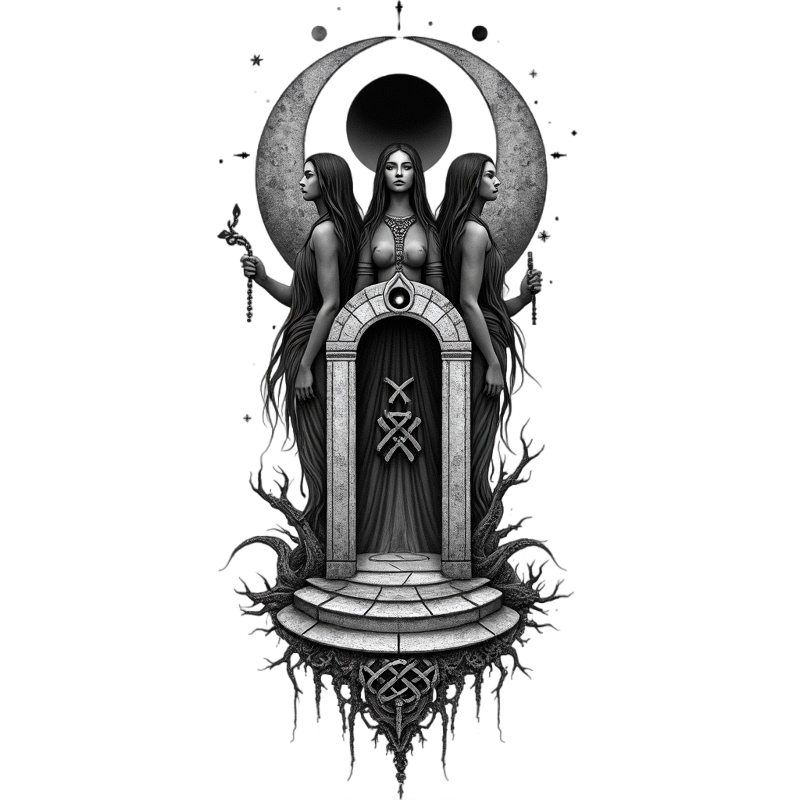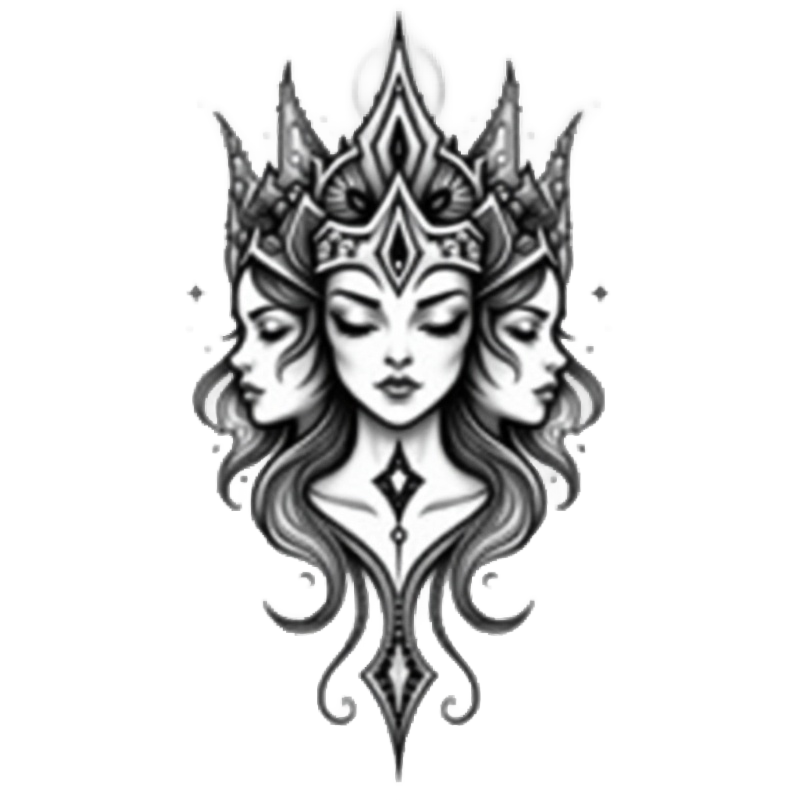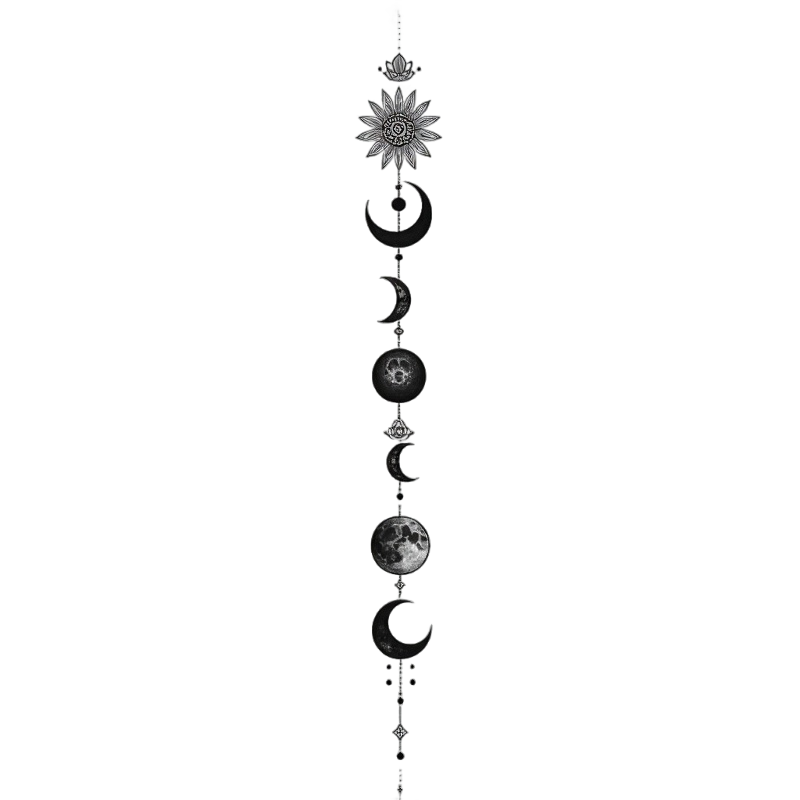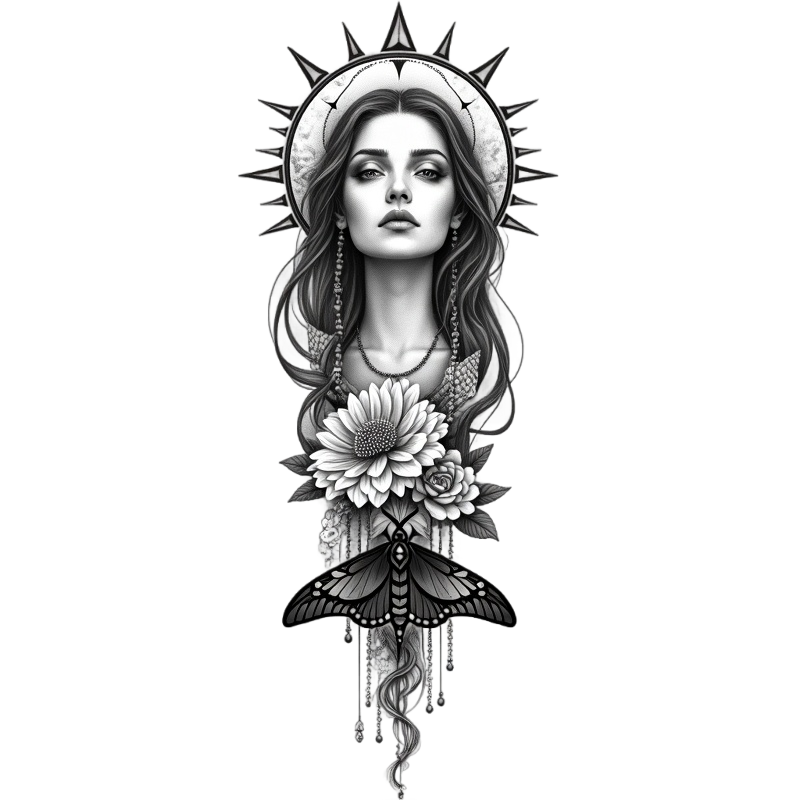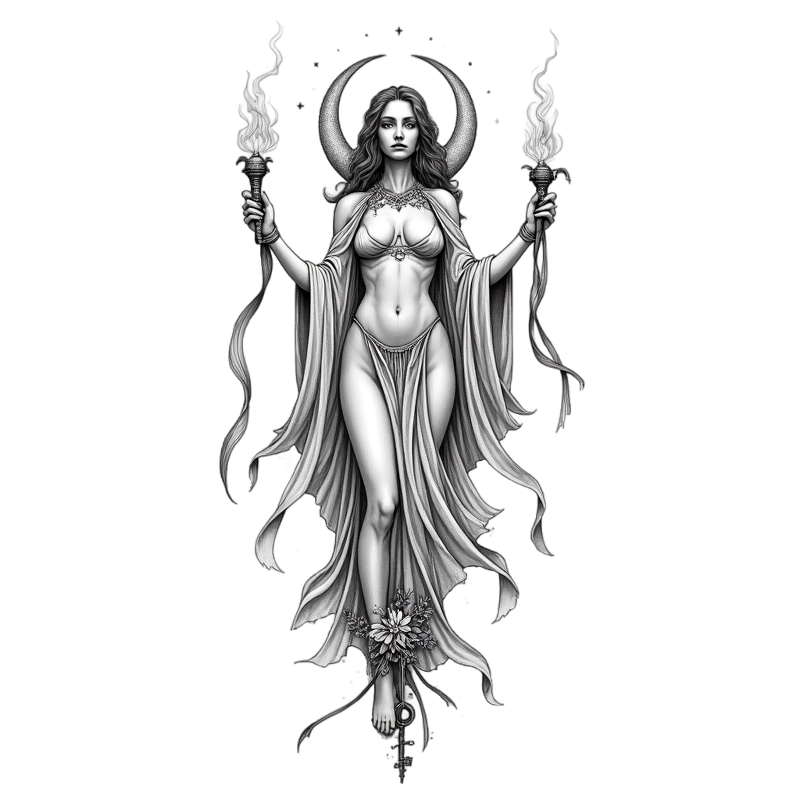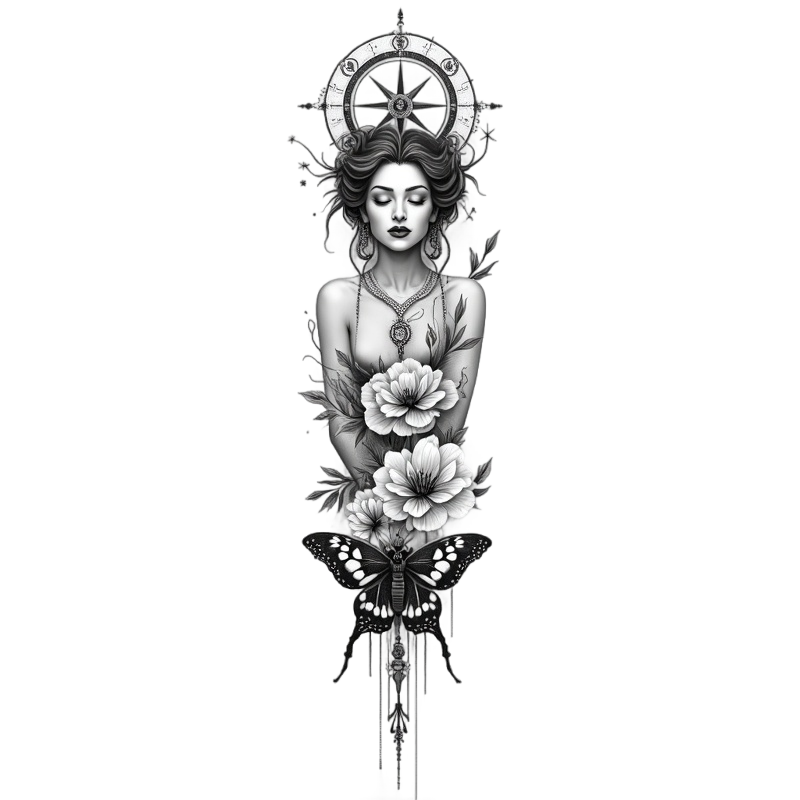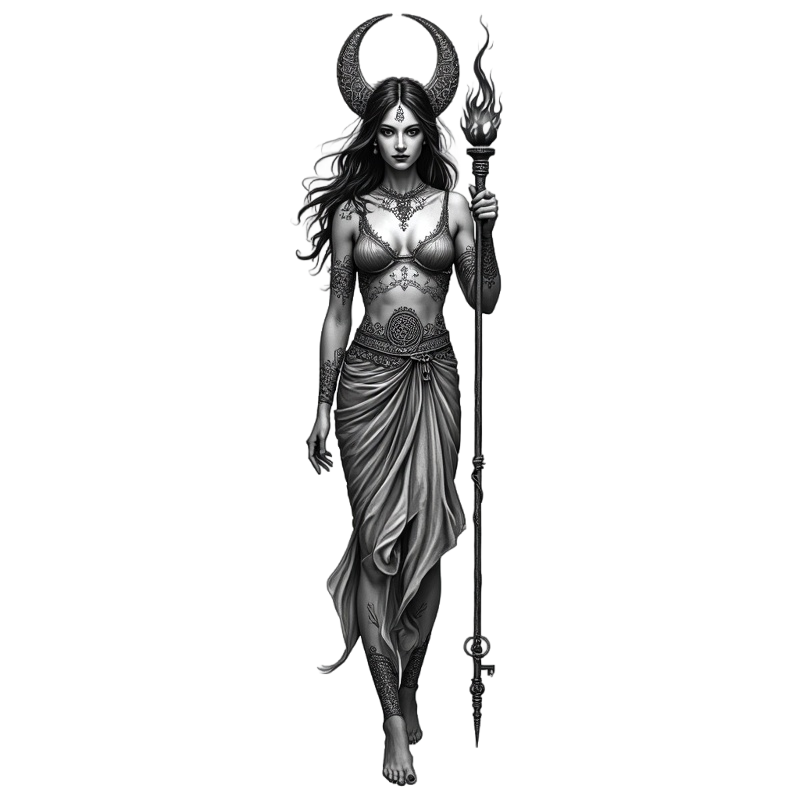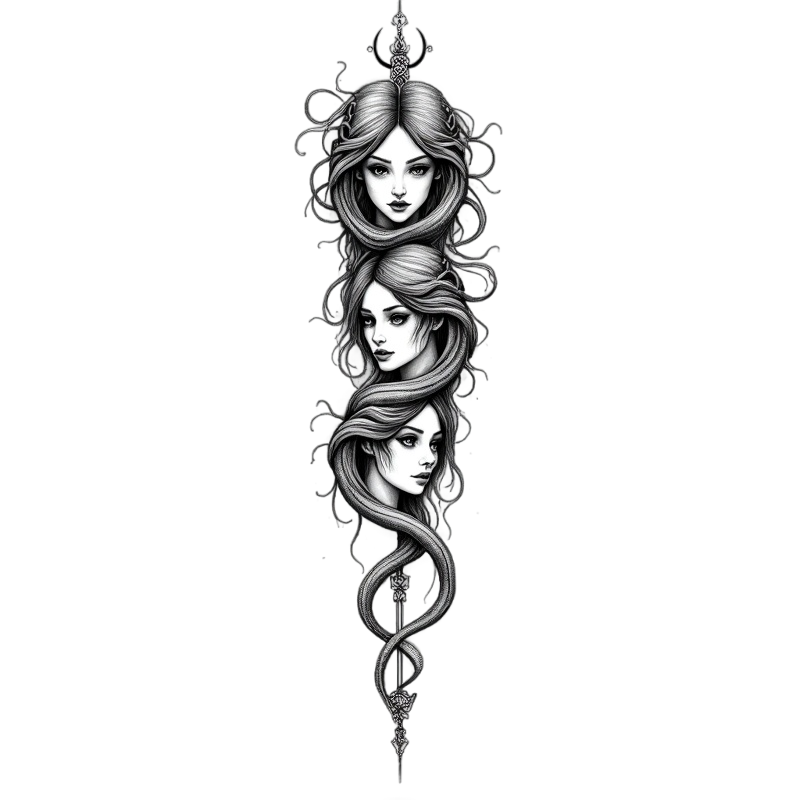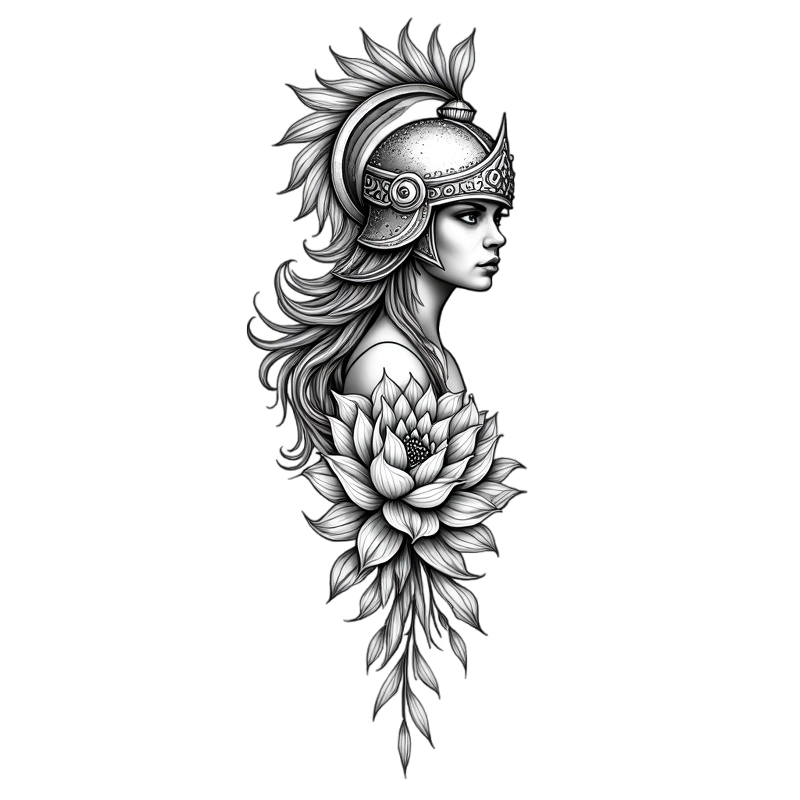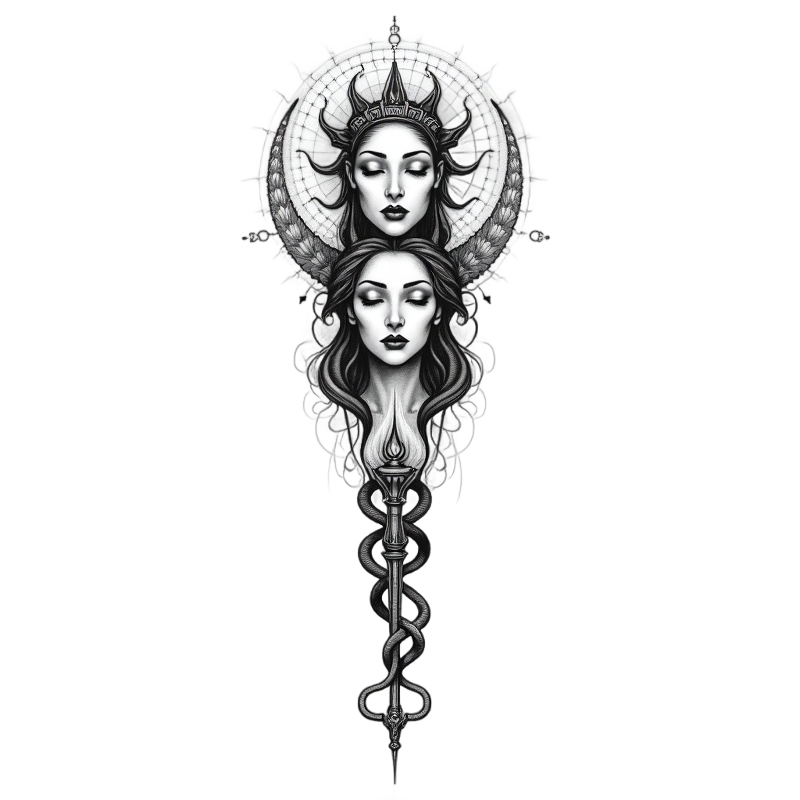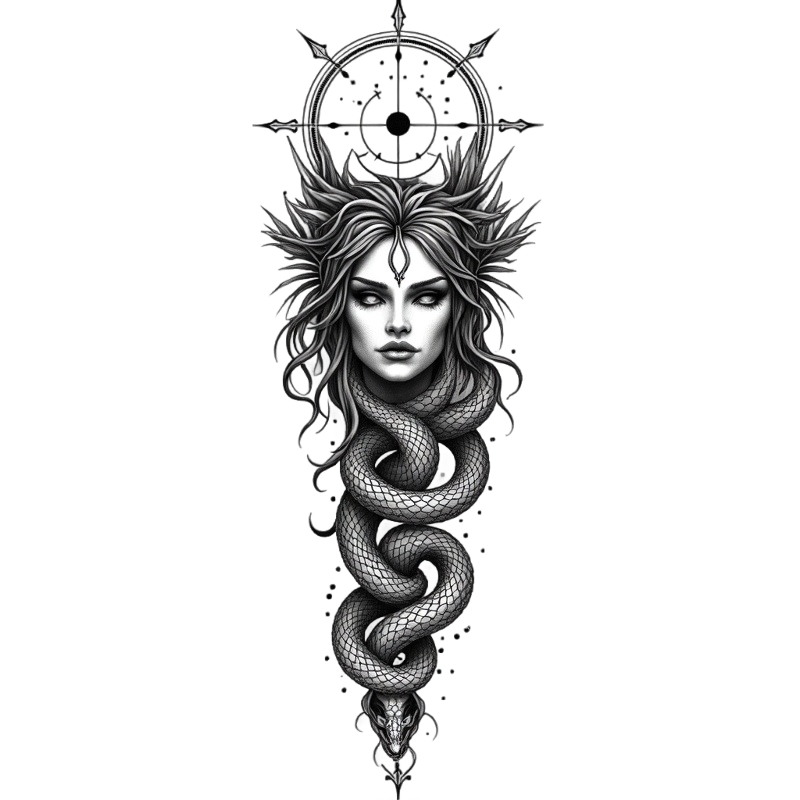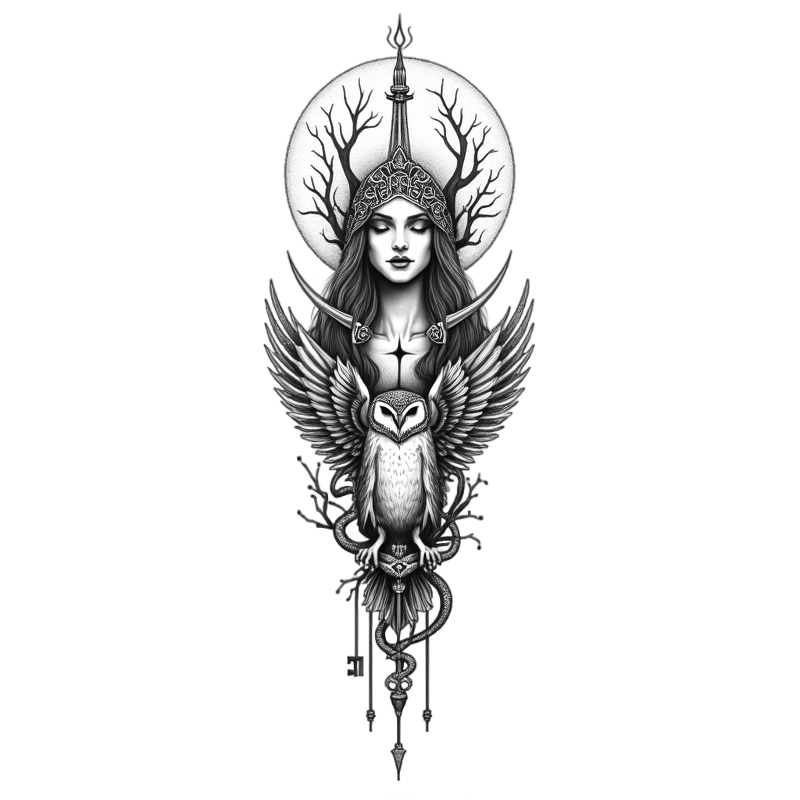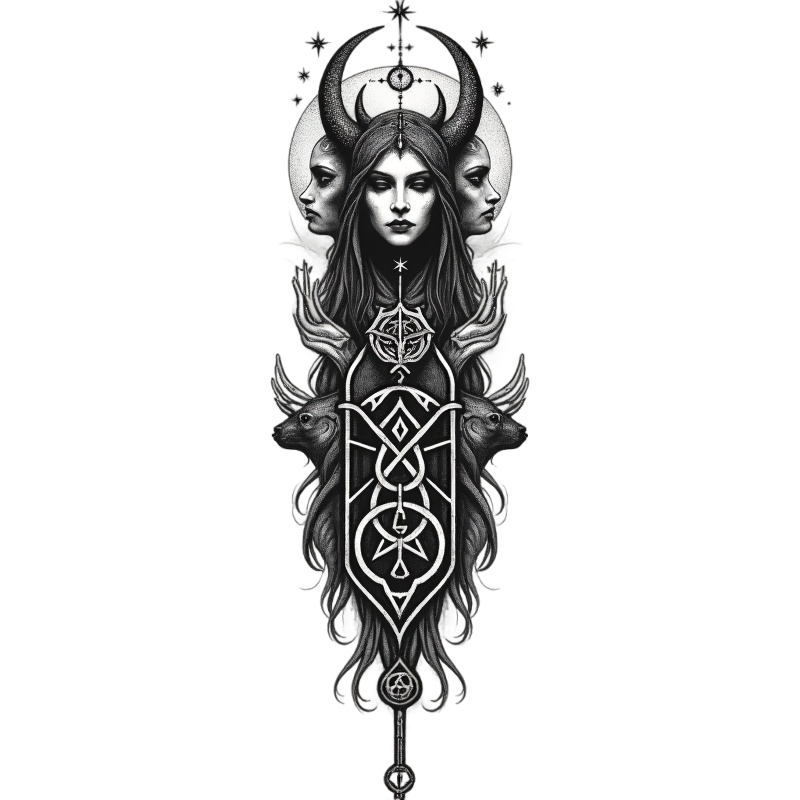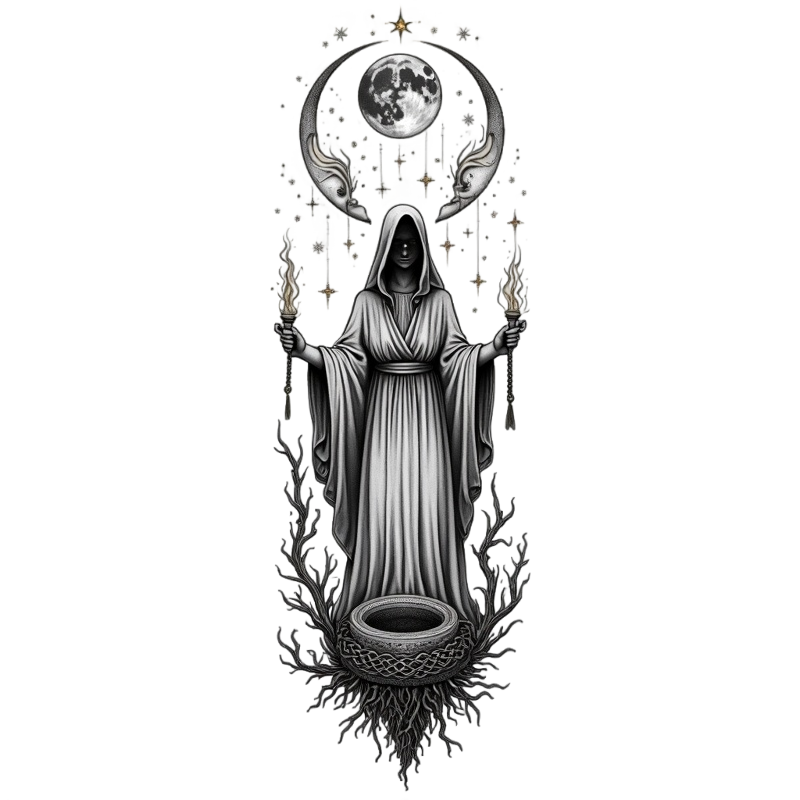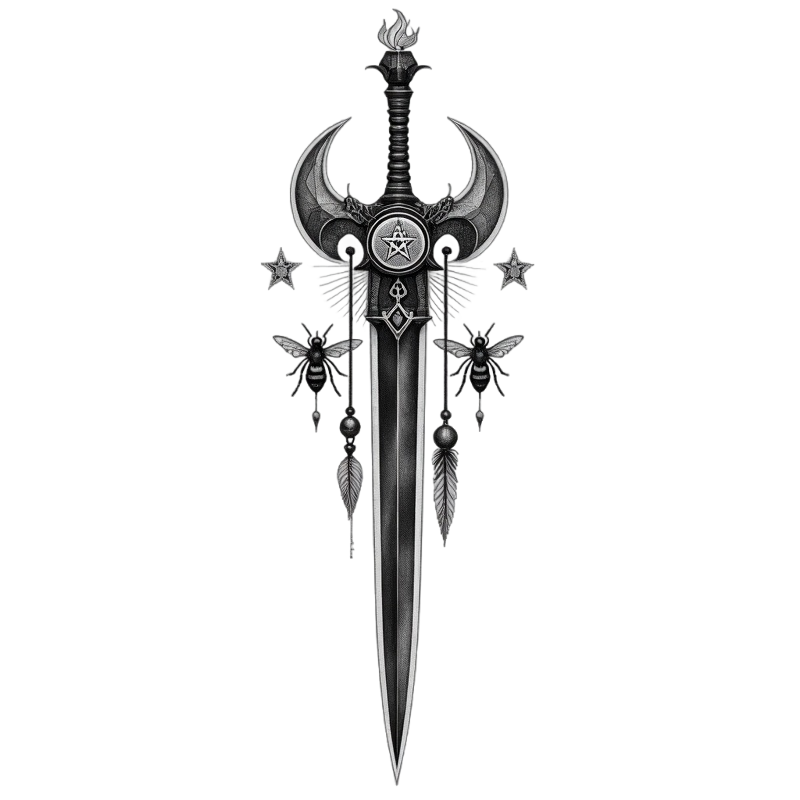Hecate Tattoo Ideas, Designs and Meaning
Meaning of Hecate Tattoos
- Hecate tattoos often symbolize magic, witchcraft, and the mystical, as Hecate is the Greek goddess associated with these elements.
- She is known as the goddess of the crossroads, representing choices, transitions, and the unknown paths in life.
- Hecate is often depicted with three faces or bodies, symbolizing her dominion over the past, present, and future.
- In ancient Greek culture, she was revered as a powerful protector and guide, especially for those traveling at night.
- Hecate tattoos can also signify empowerment and independence, as she is a figure of strength and autonomy.
- Historically, Hecate was associated with the moon and night, often depicted holding torches to light the way through darkness.
- This tattoo idea is popular among those who identify with pagan or Wiccan beliefs, as Hecate is a significant figure in these spiritual paths.
- The design can vary widely, from realistic portraits to more abstract or symbolic representations, often incorporating elements like keys, torches, or dogs.
- While not gender-specific, Hecate tattoos are often chosen by women who resonate with her feminine power and wisdom.
- Common placements for Hecate tattoos include the back, arms, or thighs, allowing for detailed and intricate designs.
2,038 Tattoo Ideas
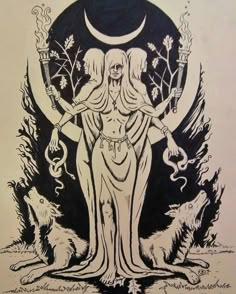

15 Hecate ideas | hecate, hecate goddess, goddess art
Selection from Pinterest
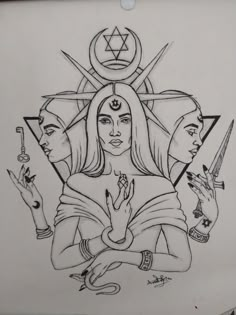

Discover 10 A Oracle Tattoo and Greek Goddess Hecate Tattoo Ideas | 3 witches drawing, small weeping trees, hecate goddess dogs and more
Selection from Pinterest
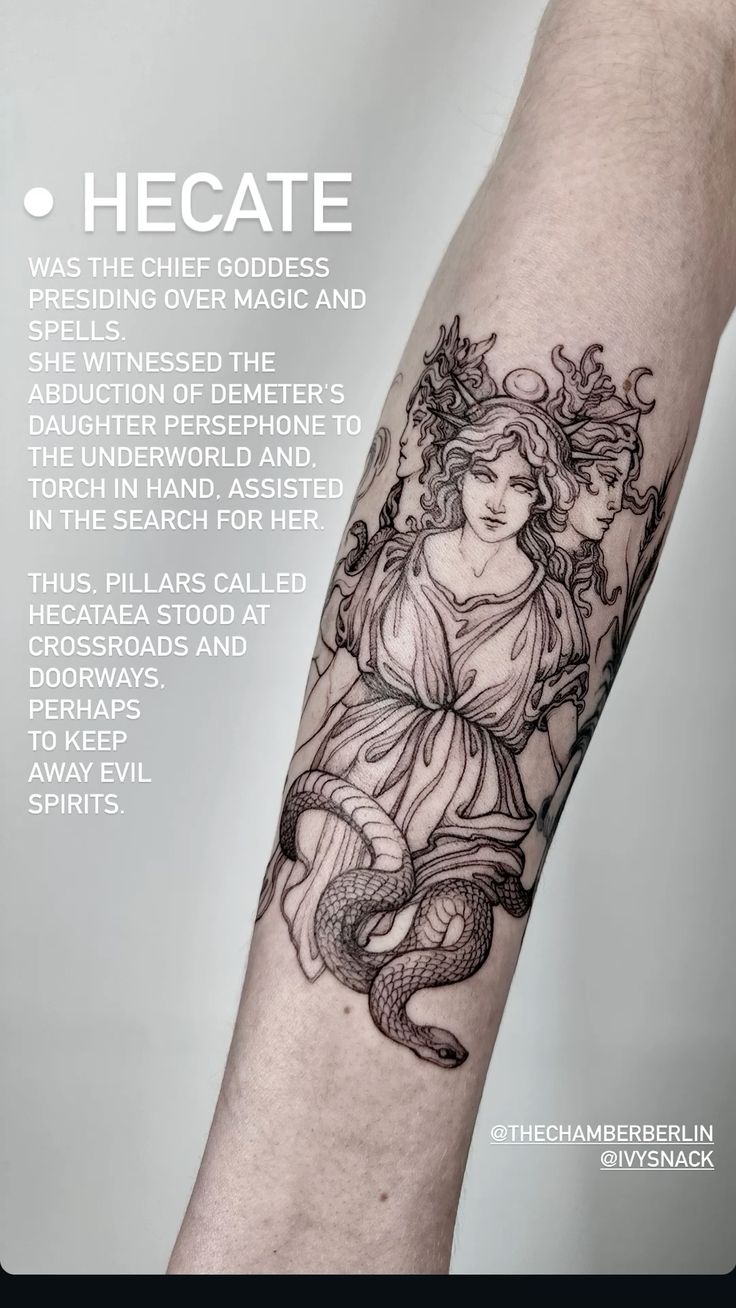

Pin di Ashley Cunningham su tattoo ideas nel 2025 | Tatuaggi
Selection from Pinterest
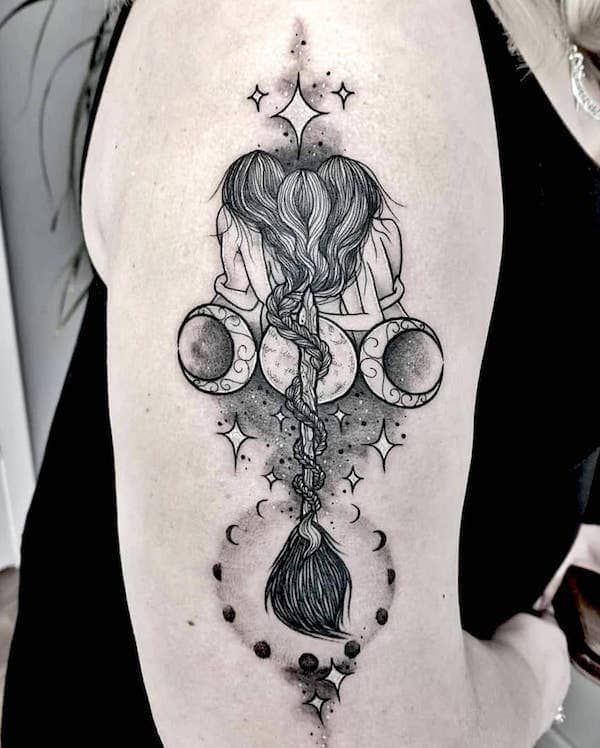

HECATE TATTOOS: Meanings, Tattoo Ideas & Tattoo Designs
Selection from Pinterest
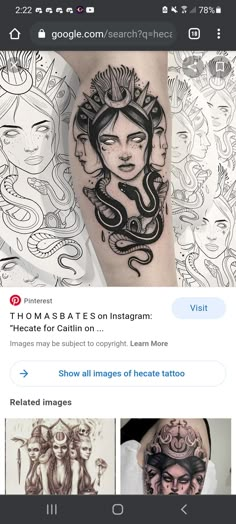

Discover 8 Hecate Tattoo and Goddess Tattoo Ideas | witch tattoo, greek goddess tattoo, artemis tattoo and more
Selection from Pinterest
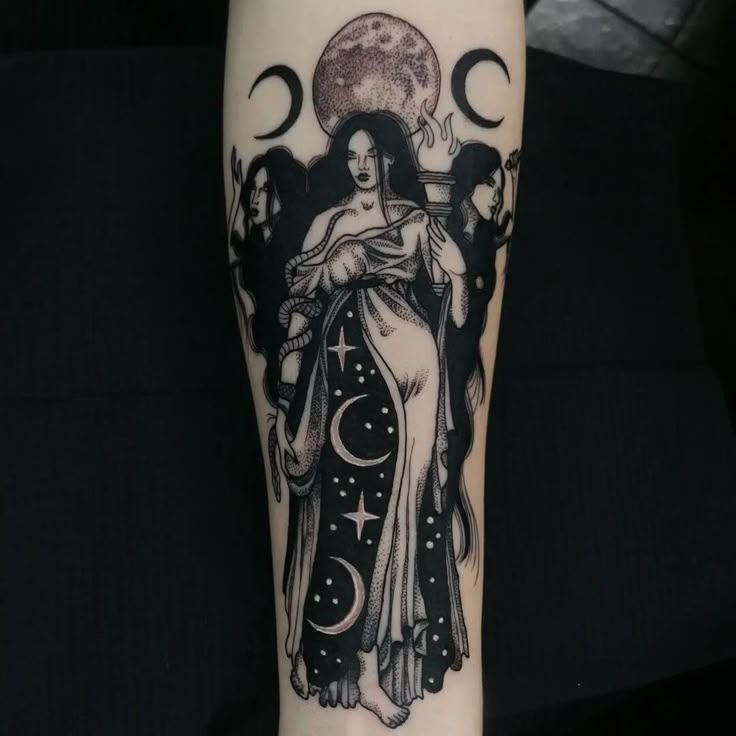

22 Amazing Greek Goddesses Tattoos For 2024!
Selection from Pinterest


Discover 7 Hecate Tattoo and Hecate Goddess Ideas | snake art inspiration, high priestess tarot card drawing, bloodshot eyes and more
Selection from Pinterest
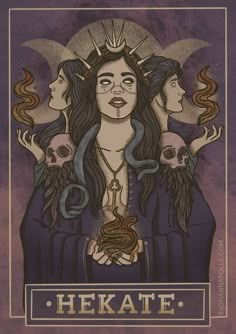

Discover 12 3 Fates Tattoo and Hecate Goddess Ideas | three witches greek mythology, greek mythology art, mythology tattoos and more
Selection from Pinterest
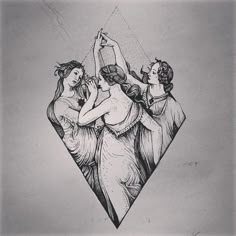

23 Hecate Tattoo ideas | hecate, goddess tattoo, witch tattoo
Selection from Pinterest
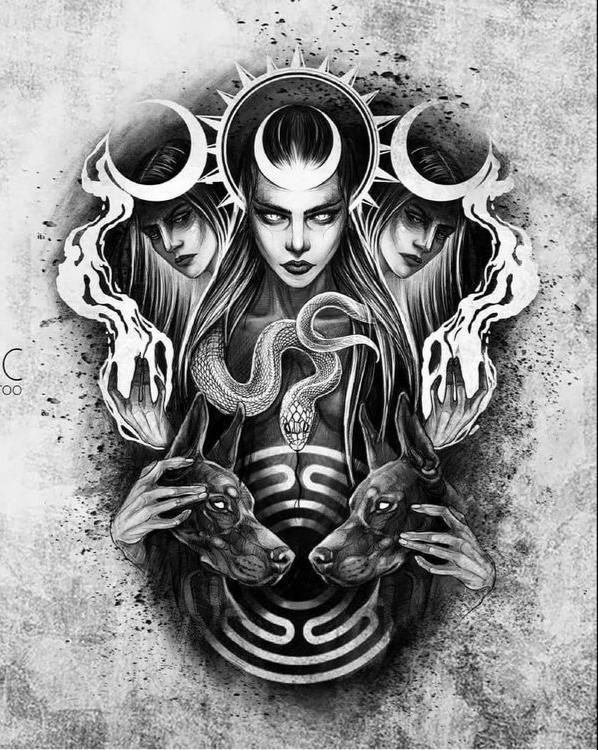

Discover 26 Triple Goddess and Hecate Goddess Ideas | witch tattoo, goddess tattoo, hecate tattoo design and more
Selection from Pinterest
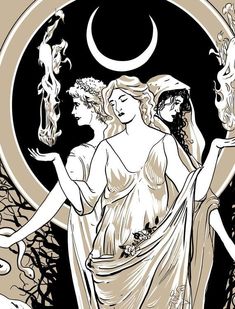

Discover 23 Tattoo Ideas and Hecate Goddess Tattoo Design Ideas | scale tattoo, hecate artwork, witch tattoo and more
Selection from Pinterest
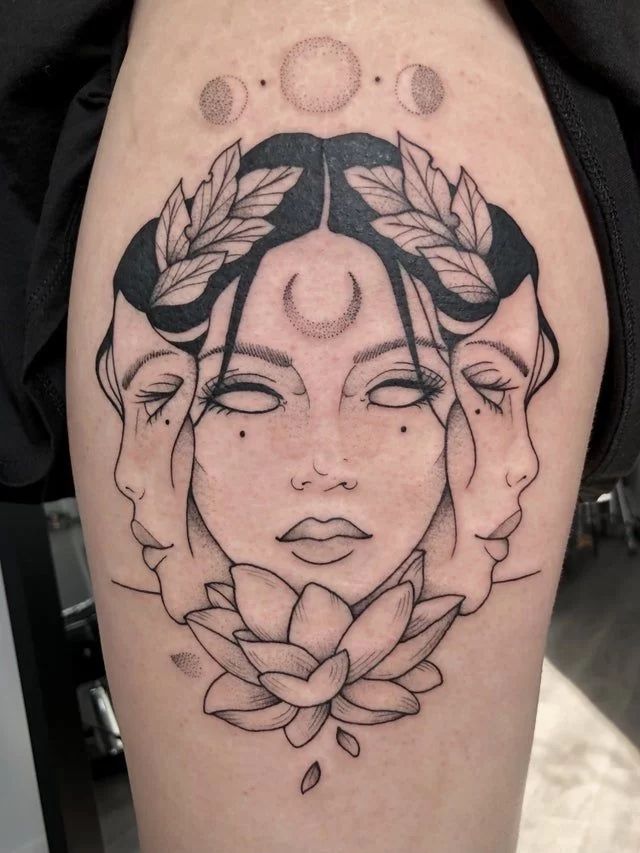

DAZZLING HECATE TATTOOS: Meanings, Tattoo Ideas & Tattoo Designs - TATTOOGOTO
Selection from Pinterest
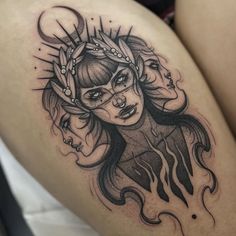

36 Hecate tattoo inspo ideas in 2025 | goddess tattoo, body art tattoos, witch tattoo
Selection from Pinterest
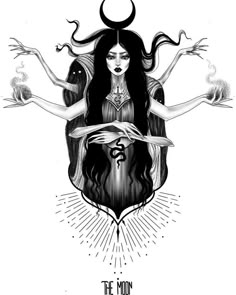

Discover 23 Tattoo Ideas and Hecate Goddess Tattoo Design Ideas | scale tattoo, hecate artwork, witch tattoo and more
Selection from Pinterest
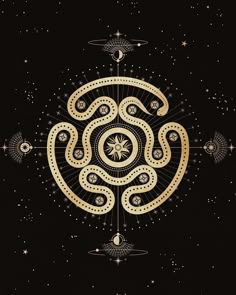

Discover 26 Tattoo and Hecate Goddess Ideas | hummingbird tattoo, witch tattoo, mythology tattoos and more
Selection from Pinterest
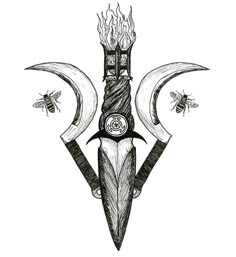

Discover 7 Hecate Tattoo and Hecate Goddess Ideas | snake art inspiration, high priestess tarot card drawing, bloodshot eyes and more
Selection from Pinterest
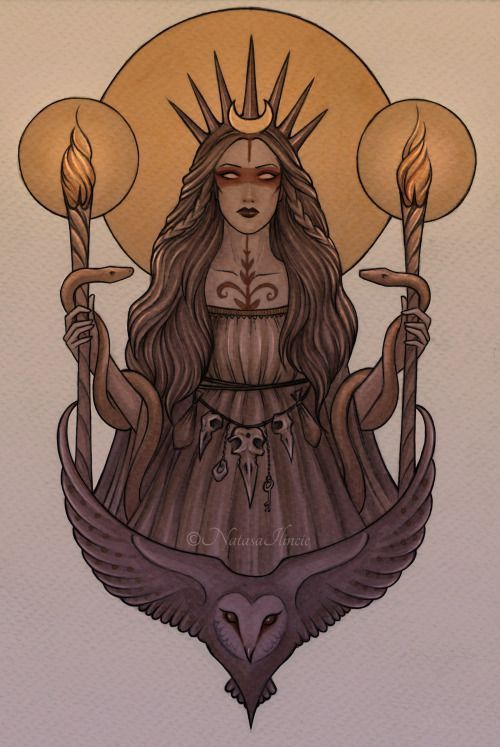

Hekate tattoo idea
Selection from Pinterest
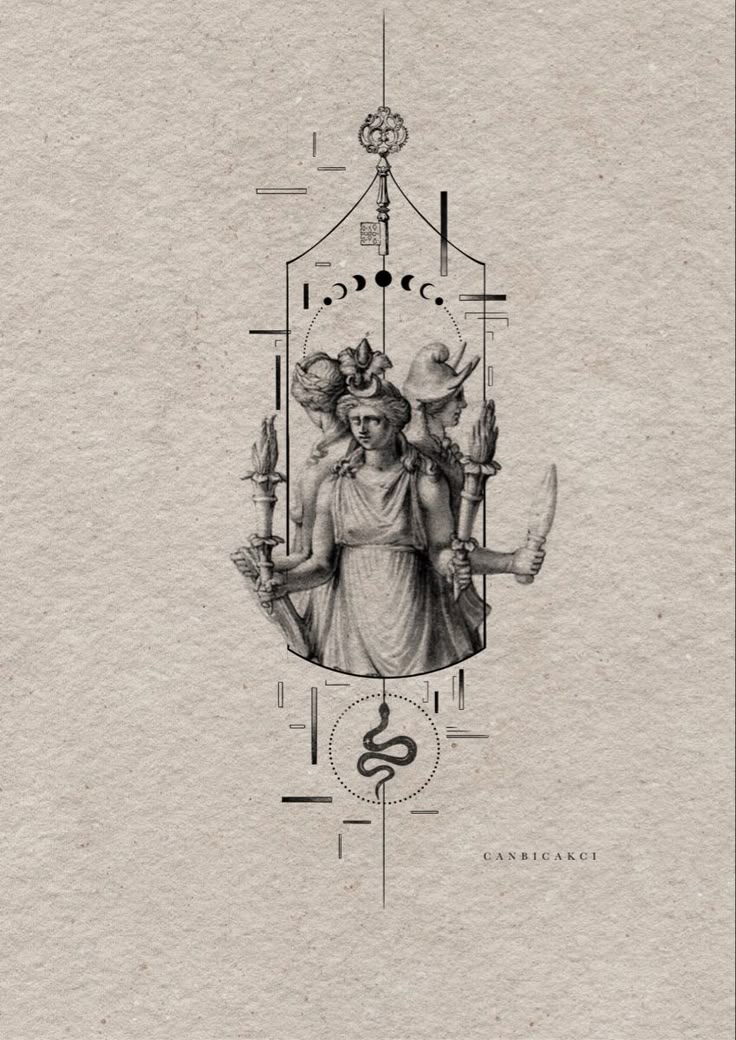

HECATE TATTOO DESIGN
Selection from Pinterest
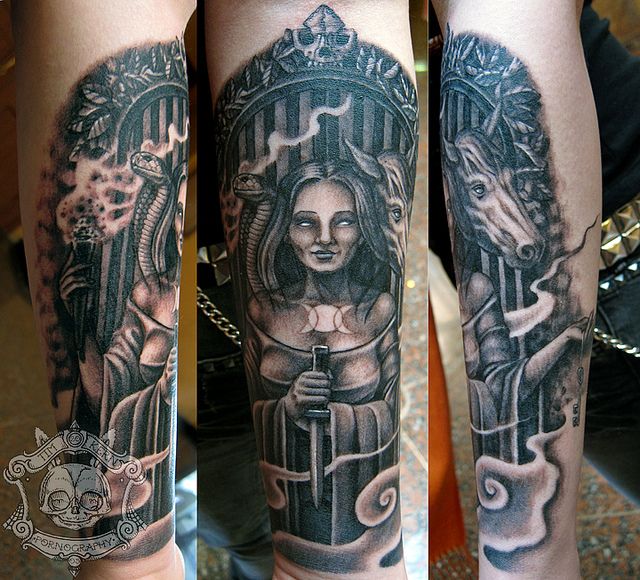

Hecate/Hekate
Selection from Pinterest
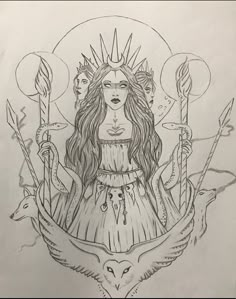

Discover 10 A Oracle Tattoo and Greek Goddess Hecate Tattoo Ideas | 3 witches drawing, small weeping trees, hecate goddess dogs and more
Selection from Pinterest
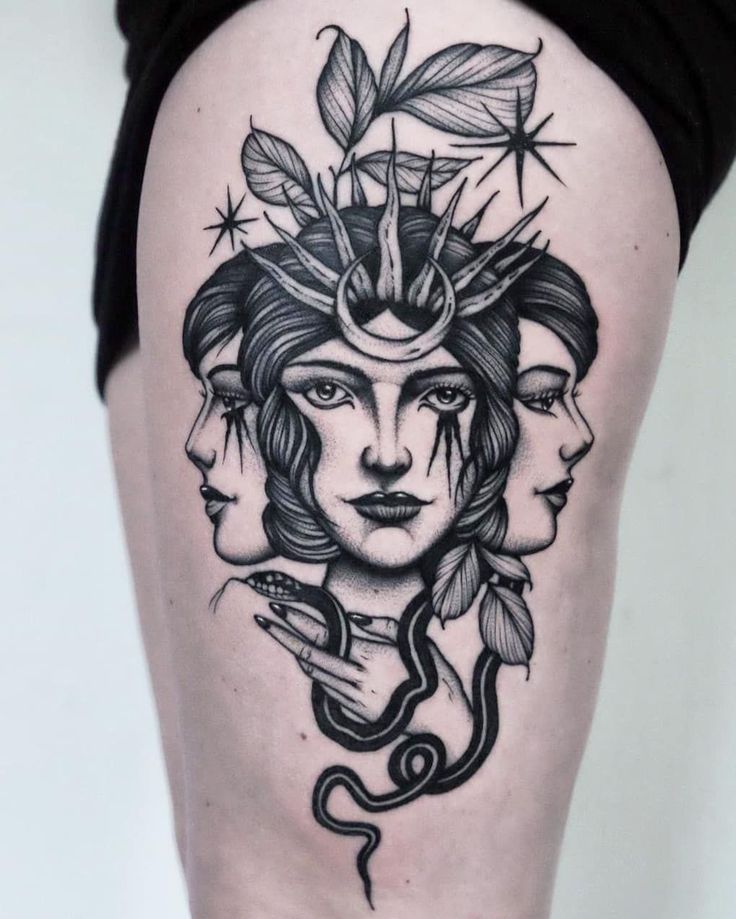

HECATE TATTOOS: Meanings, Tattoo Ideas & Tattoo Designs
Selection from Pinterest
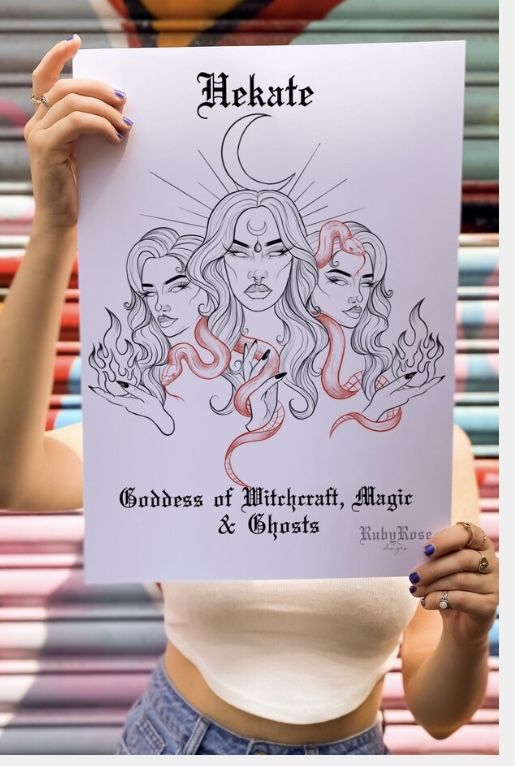

Pin by Felicia Hunter on Medusa tattoo hand in 2025 | Goddess tattoo, Wicca tattoo, Tattoo design book
Selection from Pinterest
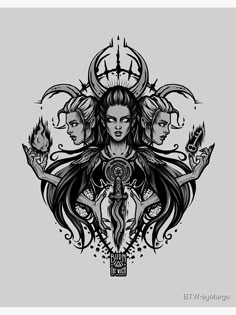

Hecate Goddess Tattoo Symbol
Selection from Pinterest
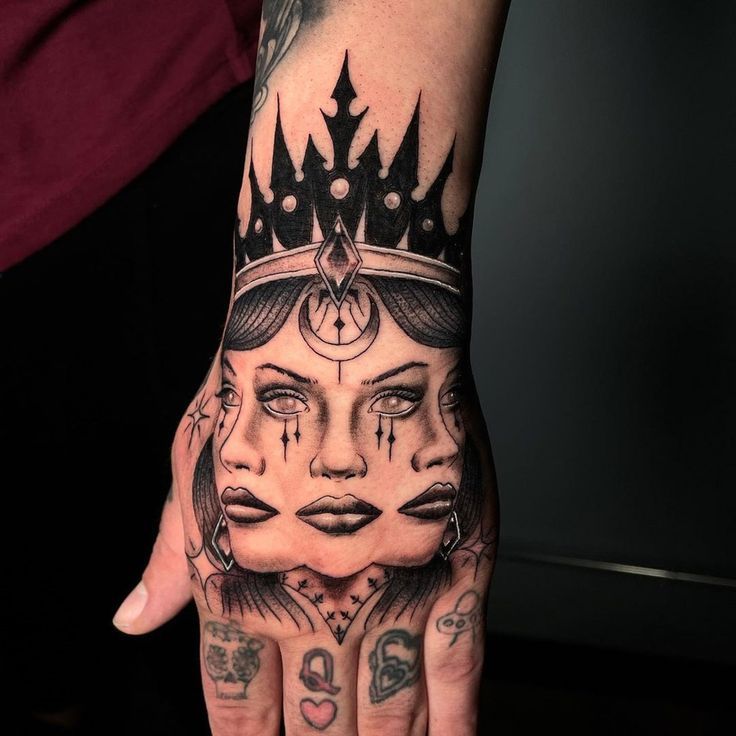

Hecate Goddess
Selection from Pinterest
One App to Store All Your Tattoo Ideas
Store your tattoo ideas in one place and Virtual Try-On them on your body!

Avoid Regrets with 3D Virtual Try-On!
Do a 3D Virtual Try-On to see how your tattoo design looks like on your body before you get it tattooed. Powered by Tatship's AI and 3D technology.



Historical Origins and Evolution of Hecate Tattoos
Hecate's historical significance is deeply rooted in ancient Greek mythology, where she was worshipped as a goddess of magic and witchcraft. Her origins are somewhat mysterious, with some myths suggesting she was a Titaness, while others depict her as a daughter of Zeus. Hecate was often invoked in rituals and ceremonies related to protection, guidance, and the afterlife. Her role as a guardian of the crossroads made her an important figure in ancient Greek religion, where she was believed to have the power to grant or deny passage to the underworld. Over time, Hecate's image has evolved, and she has become a symbol of feminine power and mystery in modern pagan and Wiccan practices.
